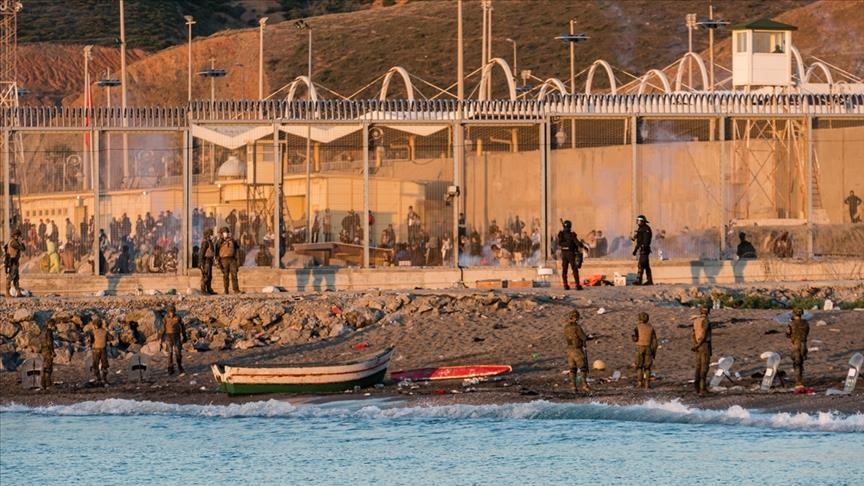Spain has sent around 4,800 of the 8,000 migrants who crossed into its African enclave of Ceuta back to Morocco, Spanish Prime Minister Pedro Sanchez said on Wednesday.
A relative calm has returned to the beaches of Ceuta where a record influx of migrants had washed ashore from Morocco starting Monday, after Moroccan security forces appeared to relax border control.
The scene was both a humanitarian and the diplomatic crisis, deriving from Spain’s decision to treat Brahim Ghali, leader of the rebel Polisario Front, for a severe case of COVID-19 in a Spanish hospital.
Spain did not tell Morocco that they were harboring the leader of the Western Sahara separatist movement, which provoked an escalation of threats that were shrugged off by Spain until it reached a boiling point on Tuesday.
By late Tuesday, after high-level bilateral meetings, Moroccan forces began controlling the border and stopping groups of migrants traveling towards it. Spanish military and police reinforcements were also deployed to control the situation.
According to local Spanish media, Ghali has been summoned to appear before the Spanish High Court on June 1 to make a declaration following the decision to reopen a lawsuit against him for genocide and torture.
Meanwhile, Spain is in hot water from some rights defenders for the questionable legality of its move to return the majority of migrants without due process.
Six major NGOs released a statement on Tuesday saying that the rapid, mass expulsions are violating international and Spanish law.
European Union courts have previously backed Spain carrying out these so-called “express deportations,” but only in cases where migrants were crossing border fences.
Spain’s Interior Ministry has not made public its legal justification for being able to carry out these mass deportations at record speed.
Many of those remaining in Spain are minors, who, the Interior Ministry said cannot be deported quickly. Spanish authorities have scrambled to establish a holding area in the small city of Ceuta, which is just 18.5 square kilometers.
The European Union has backed Spain's actions, with European Council President Charles Michel tweeting: “Spain has all our support and solidarity… Spain’s borders are the EU’s borders.”
The six Spanish NGOs blamed the migratory position of both Spain and the EU for creating the conditions for the crisis in Ceuta.
-The policy of externalizing the borders to third countries doesn’t only fail to offer permanent solutions, it leads to people who are in migratory processes being used to exert political pressure- they said in a joint statement.
